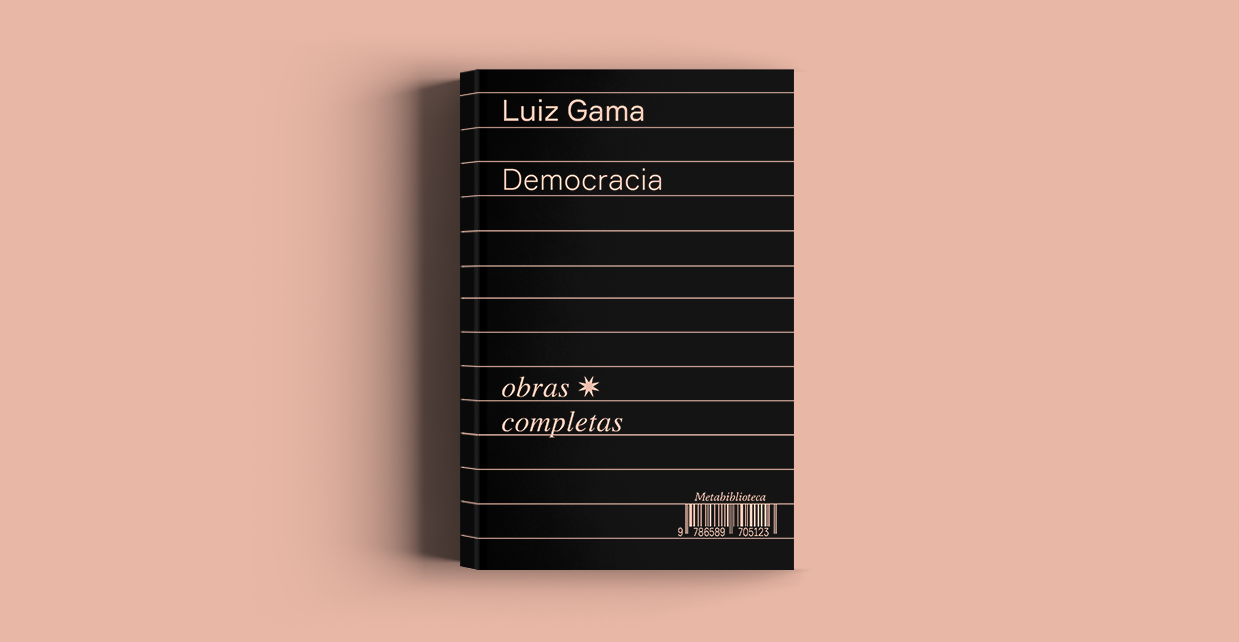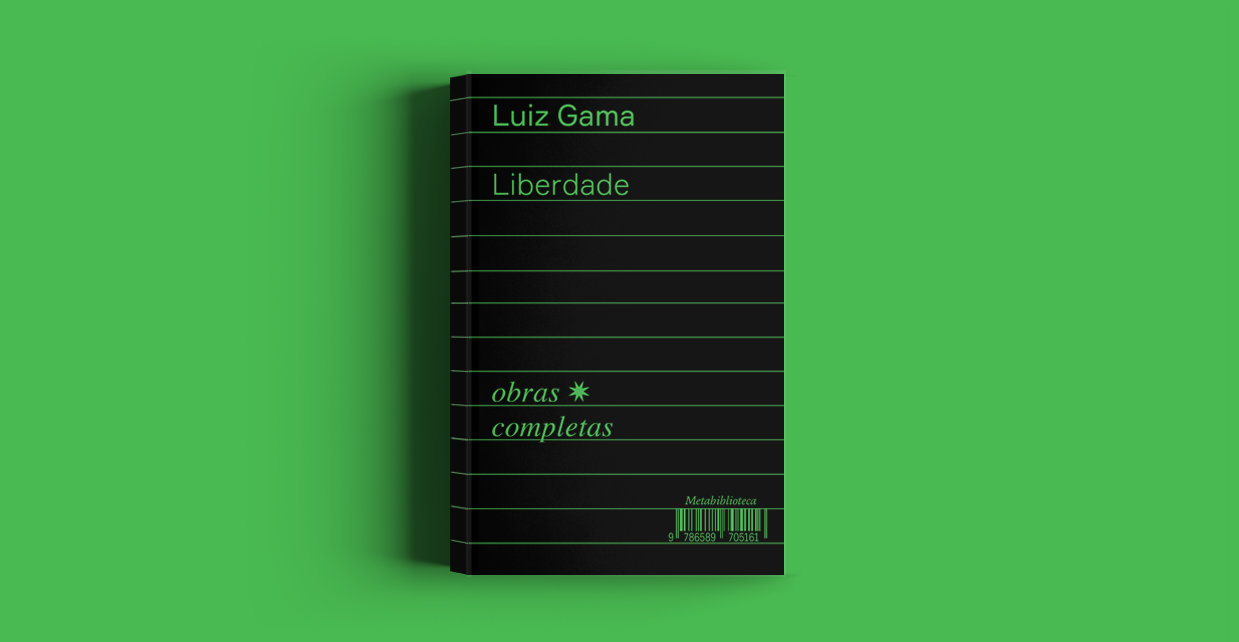(org.)
Bruno
R.
de Lima
Bruno Rodrigues de Lima, PhD, from São Paulo,
holds a JD from the State University of Bahia, an LLM from the University of Brasilia, both in Brazil, and a PhD in Legal History from the Johann Wolfgang Goethe University of Frankfurt, Germany, with a thesis on the legal work of the Black abolitionist Luiz Gama (1830-1882). Currently, he is a post-doctoral researcher at the Department of Multidisciplinary Theory of Law at the Max Planck Institute for Legal History and Legal Theory, Germany, and is the editor of the 11 volumes of Luiz Gama’s Complete Works.
▅ Vol. 1
Poetry
1854 – 1865

Poetry gathers the first writings of Luiz Gama. From the first appearance of Gama in
the press, in 1854, the volume covers a decisive decade of the young poet's
intellectual development. It is composed of seventy-four texts, sixty-three of
which are poems and eleven texts that move between poetry and prose, in what
may be called poetic prose. It is divided into two large blocks. The first,
entitled Primeiras trovas burlescas, presents the full set of poems released by
Getulino, according to the editions of 1859 and 1861. The second, Outras trovas
e outras burlas, includes texts written after Getulino, which show a line of
continuity between what can be called the first and second phase of the same
literary project.
For further information
This edition carries a historical mark: unlike the previous ones (of 1859, 1861, 1904 and 2000), Primeiras trovas burlescas de Getulino will not be accompanied by the poems of José Bonifácio. This editorial choice is due to the fact that in the early 1870s there was a rupture between the two poets, precisely because Bonifácio had dedicated himself to the defence of slavery in the famous " Questão Netto ". After that, Gama never reissued the book in his lifetime. Due to the poetic stature of Luiz Gama, on the one hand, and to the subtleties of racism which conventionally linked the two poets, on the other, it was decided to reissue the Primeiras Trovas Burlescas without Bonifácio's company.
This edition carries a historical mark: unlike the previous ones (of 1859, 1861, 1904 and 2000), Primeiras trovas burlescas de Getulino will not be accompanied by the poems of José Bonifácio. This editorial choice is due to the fact that in the early 1870s there was a rupture between the two poets, precisely because Bonifácio had dedicated himself to the defence of slavery in the famous " Questão Netto ". After that, Gama never reissued the book in his lifetime. Due to the poetic stature of Luiz Gama, on the one hand, and to the subtleties of racism which conventionally linked the two poets, on the other, it was decided to reissue the Primeiras Trovas Burlescas without Bonifácio's company.
▅ Vol. 2
Prophecy
1862 – 1865
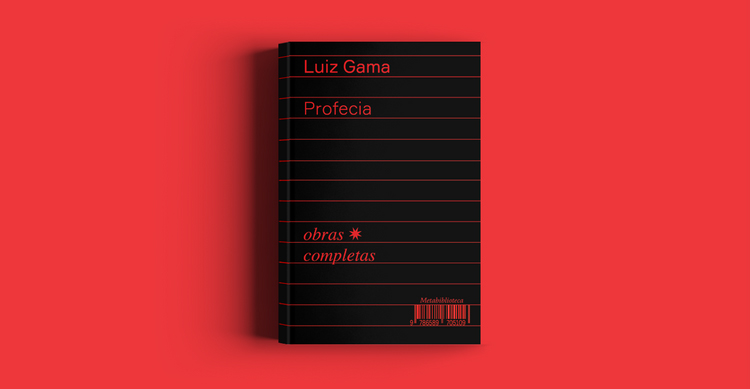
The volume
Prophecy gathers chronicles that the young Gama published in the press.
Focusing on issues of political and police life in the province of São Paulo,
capital and countryside, the chronicles cover criminal matters, disputes in the
political high society, party articulations, as well as the denunciation of
slavery. Prophecy, the title, refers to the suggestive pseudonym adopted by Gama,
as well as the visions of freedom he had for the future of Brazil.
For further information
Gama reinvented himself and began to support audacious ideas in the press for the feverish decade. A keen reader of the great political events of his time, such as the War of Secession in the United States and the movements that would lead up to the Paraguayan War, Gama built up his fighting stance in the pages of the press. More than politics, it was necessary to appeal to the public's consciousness through a kind of prophetic call, which anticipated, in the present, the traps and challenges of the future.
Gama reinvented himself and began to support audacious ideas in the press for the feverish decade. A keen reader of the great political events of his time, such as the War of Secession in the United States and the movements that would lead up to the Paraguayan War, Gama built up his fighting stance in the pages of the press. More than politics, it was necessary to appeal to the public's consciousness through a kind of prophetic call, which anticipated, in the present, the traps and challenges of the future.
▅ Vol. 3
Comedy
1866 – 1867
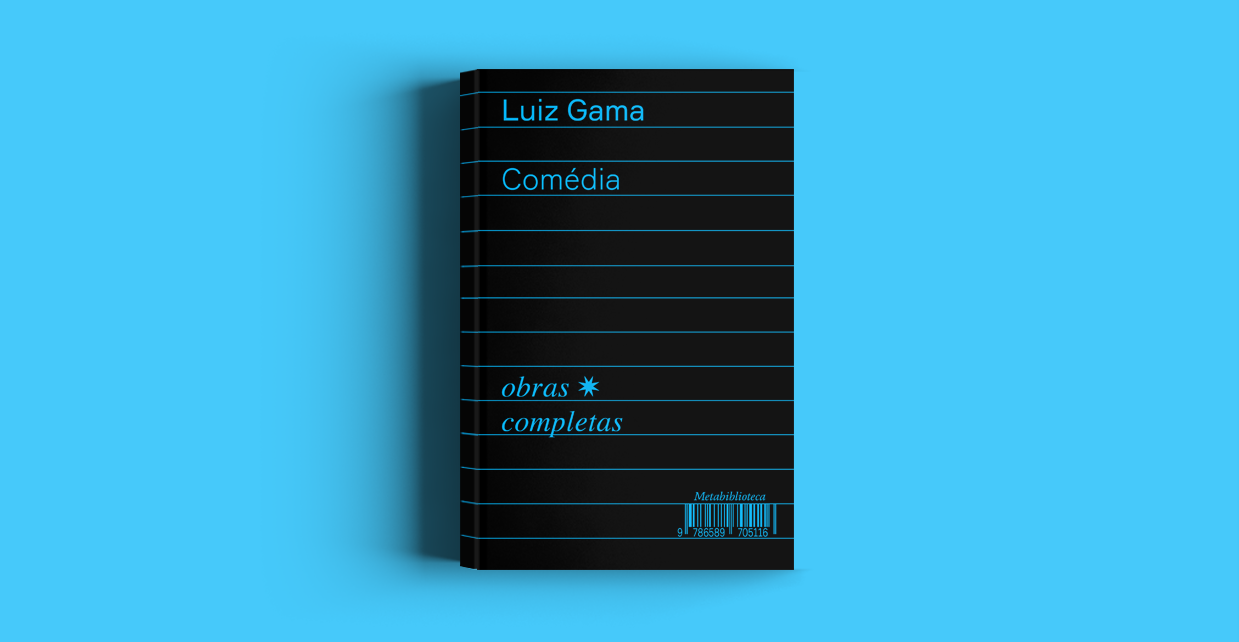
The third
volume of the collection gathers chronicles that mock the customs of São Paulo,
especially the cultural, theatrical, political and religious life of the time.
It continues the chronicles of the previous volume, Prophecy: now more
experienced in dealing with the press, Gama advances in his literary project,
betting on a more comic and theatrical style. This would earn him stonings
(literal ones!) and censure.
For further information
Comedy proved to be a powerful weapon in the poet's hand, who had already launched his verses and his prophecies. Gama laughed and made people laugh. Following the old Latin saying, which he loved so much, ridendo castigat mores, he gave bad habits the prize they deserved: laughter out loud, mockery, derision. The texts serve as windows for contemporary readers to see, and perhaps laugh at, what the São Paulo elite of the time was made of.
Comedy proved to be a powerful weapon in the poet's hand, who had already launched his verses and his prophecies. Gama laughed and made people laugh. Following the old Latin saying, which he loved so much, ridendo castigat mores, he gave bad habits the prize they deserved: laughter out loud, mockery, derision. The texts serve as windows for contemporary readers to see, and perhaps laugh at, what the São Paulo elite of the time was made of.
Focusing on
the years 1866 to 1869, this volume reveals Gama's activities in other fields
of knowledge and public debate, such as education and politics, as well as his
entry into the world of law. Still using a pseudonym, Gama went on to defend in
the press the right to universal education and the obligation of the State to
guarantee high-quality public education at all levels as the foundations of
democratic life. Even today, the idea that democracy depends on wide, general
and unrestricted education sounds inconvenient to some. At the time, it was a
revolutionary act.
For further information
After entering the public educational debate, Gama decided to go a step further. It was time to translate the word democracy into a republican agenda. In the context of the Brazilian Empire, it was equally revolutionary. And Gama does so, for the first time, by writing systematically in his own name. From that point on, he would never stop. Democracy, law and freedom became keywords of his literature. However, soon after linking his opinions to his own name, Gama was dismissed from his position as an amanuensis in the capital's police department. This marked the beginning of a new phase, dedicated to advocacy and law.
After entering the public educational debate, Gama decided to go a step further. It was time to translate the word democracy into a republican agenda. In the context of the Brazilian Empire, it was equally revolutionary. And Gama does so, for the first time, by writing systematically in his own name. From that point on, he would never stop. Democracy, law and freedom became keywords of his literature. However, soon after linking his opinions to his own name, Gama was dismissed from his position as an amanuensis in the capital's police department. This marked the beginning of a new phase, dedicated to advocacy and law.
▅ Vol. 5
Law
1870 – 1875
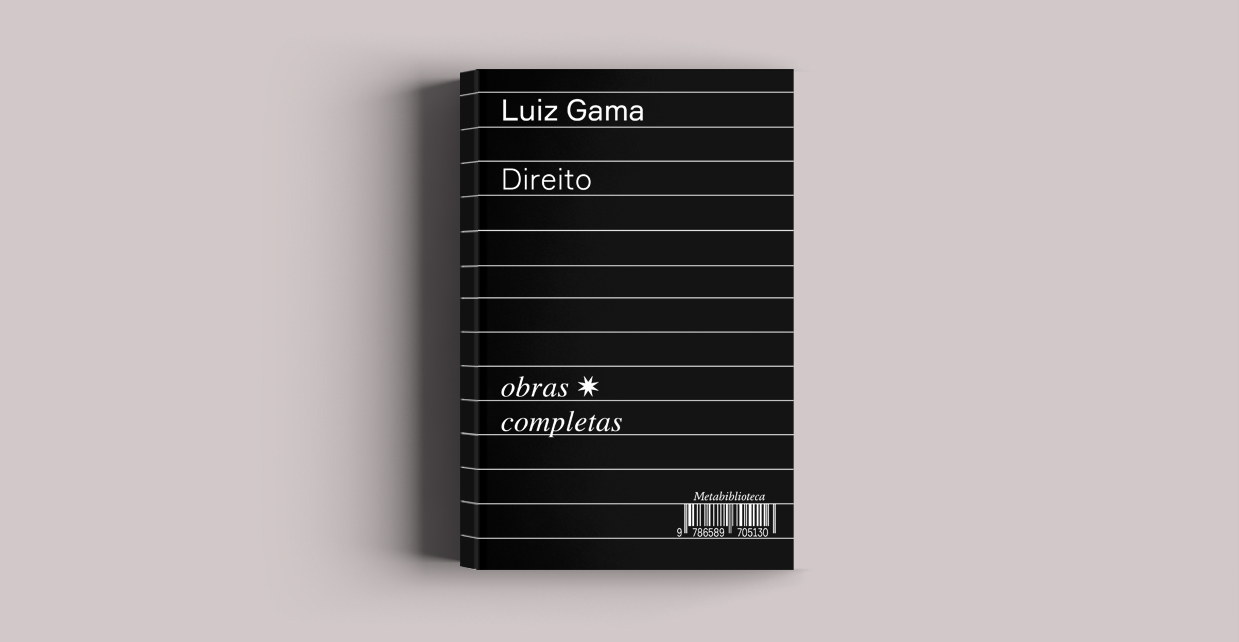
Law is
marked by Luiz Gama's removal from the police in December 1869 and the
beginning of his career as a lawyer in 1870. This volume, which covers a total
of five years, brings together his normative-pragmatic literature. These texts
can be read according to internal thematic divisions of law: civil, criminal
and procedural, but also based on the specific cases in which Gama acted as a
lawyer or an interested part.
For further information
Most of these texts deal with cases involving slavery and freedom. But Gama also acted in causes of other legal nature, eminently technical, without dealing with the issue of life and death, which reveals the intellectual mastery of the lawyer in other subjects in the field of law.
▅ Vol. 6
Satire
1876
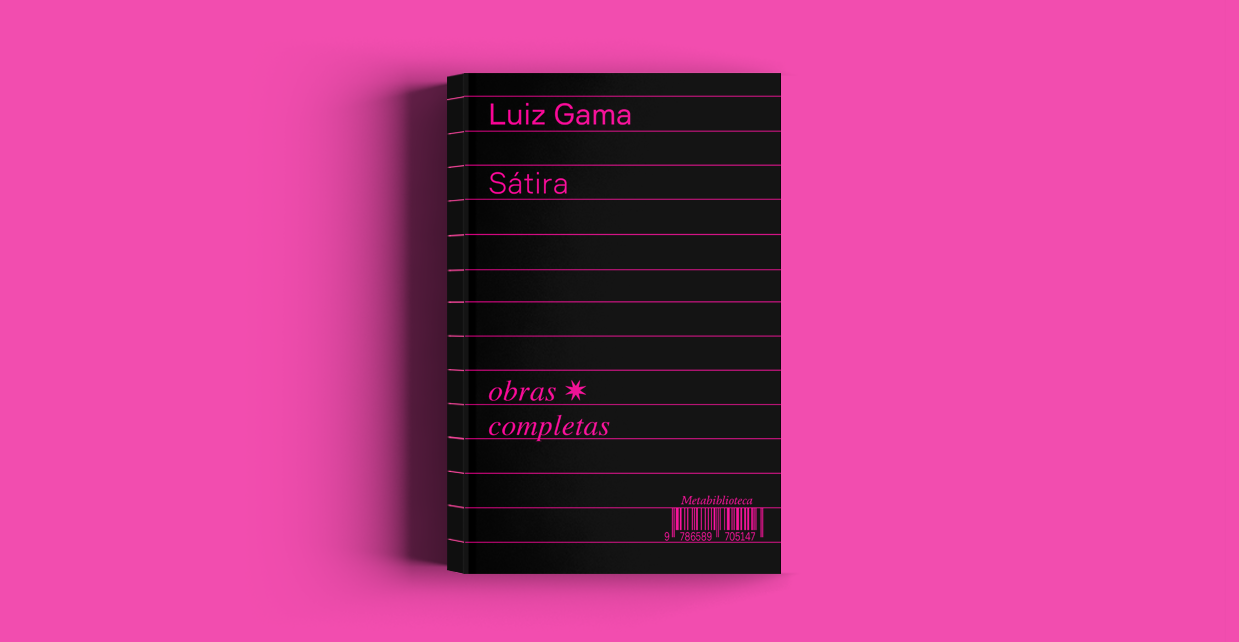
Satire
gathers texts produced during a single year, 1876. This set is a kind of hiatus
from the legal world and marks Luiz Gama's return to the press as a satirical
poet. The result is a set of energetic texts that, in general, criticise the
customs and morality of a corrupt, violent and slave-holding society.
For further
information
Gama built a satirical work of epic proportions. No one passed unscathed through the beak of his pen: judges, lawyers, professors, journalists, bankers. All were mocked as a hideous expression of the slave-owning Brazilian society.
Gama built a satirical work of epic proportions. No one passed unscathed through the beak of his pen: judges, lawyers, professors, journalists, bankers. All were mocked as a hideous expression of the slave-owning Brazilian society.
▅ Vol. 7
Crime
1877 – 1879

The
triennium which comprises Crime, from 1877 to 1879, presents Luiz Gama's return
to law on the basis of texts which are mostly criminal cases: petitions for
habeas corpus, denunciations of prisoners' rights violations and illegal
arrests. Themes that make this volume a kind of development of volume 5, Law.
For further
information
Regarding criminal matters and criminal procedural matters, the texts in Crime reveal the expertise with which he interpreted criminal law in Brazil. A technical skill that the adjectives that others associate with Gama - as a rábula - try to diminish, hide or despise.
Regarding criminal matters and criminal procedural matters, the texts in Crime reveal the expertise with which he interpreted criminal law in Brazil. A technical skill that the adjectives that others associate with Gama - as a rábula - try to diminish, hide or despise.
This volume
covers the period from 1880 to 1882, ending with the fateful death of Luiz Gama
in August 1882. Entitled Freedom, it records the emergence of a type of
combative literature that demanded the immediate abolition of slavery. Despite
the recurring abolitionist theme in Gama's work, present since volume 1, it was
only in 1880 that the campaign for freedom gained a specific textual corpus.
For further
information
The texts in this volume are the result of the campaign for radical abolition which also aimed to guarantee education and citizenship for the freedmen: Gama's abolitionism demanded citizenship and equality in fact and in law. The importance of this collection is also due to the fact that the lawyer reflected on the historical process underway, and proposed political solutions for the present time, revealing his intellectual nature which is still little (re)known until today.
The texts in this volume are the result of the campaign for radical abolition which also aimed to guarantee education and citizenship for the freedmen: Gama's abolitionism demanded citizenship and equality in fact and in law. The importance of this collection is also due to the fact that the lawyer reflected on the historical process underway, and proposed political solutions for the present time, revealing his intellectual nature which is still little (re)known until today.
▅Vol. 9
Justiça
1850 – 1882
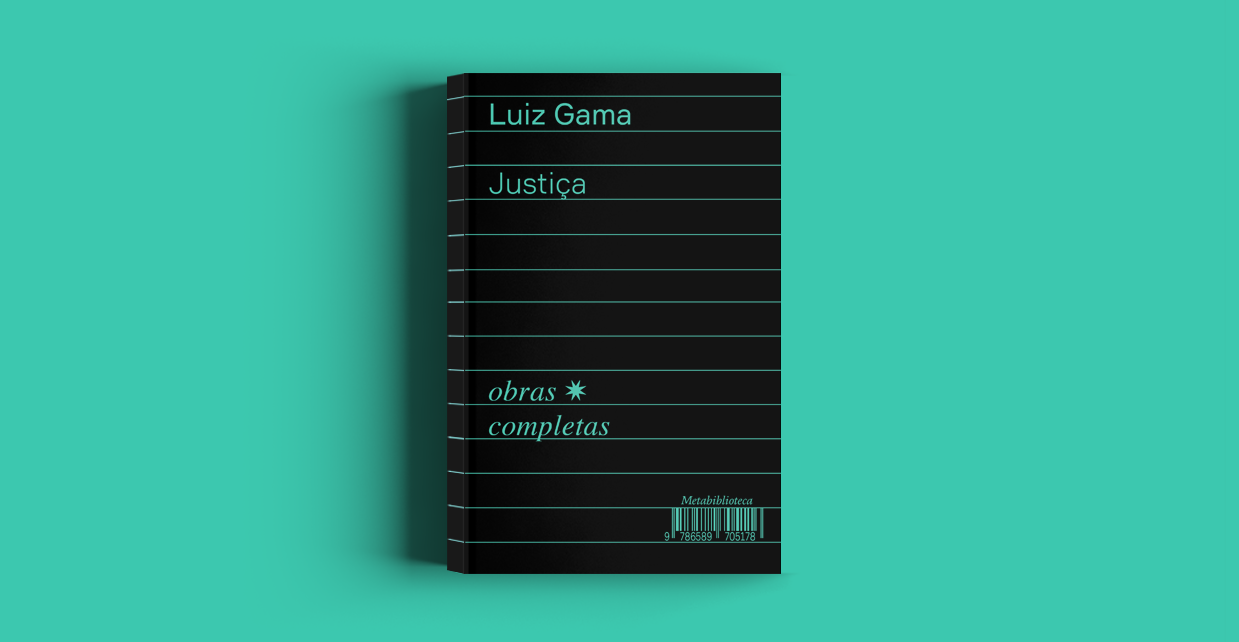
Justice presents fundamental manuscripts of Luiz
Gama, which are even constituted as decisive pages of worldwide abolitionism.
It is composed of petitions that made their way through the Judiciary,
sometimes written on the doors of jails, police stations and courts
For further
information
In addition to the previous volumes, Justice reveals the magnitude of Gama's political and legal action: it is a work that confirms his stature as a jurist. Being an exception in the chronological order of the collection, Justice is the finishing touch that at one and the same time articulates the previous themes, above all legal, of the collection, and gives unity to his literature. It is a unique volume of the complete works of Luiz Gama.
In addition to the previous volumes, Justice reveals the magnitude of Gama's political and legal action: it is a work that confirms his stature as a jurist. Being an exception in the chronological order of the collection, Justice is the finishing touch that at one and the same time articulates the previous themes, above all legal, of the collection, and gives unity to his literature. It is a unique volume of the complete works of Luiz Gama.
▅ Vol. 10
Polícia
1850 – 1882
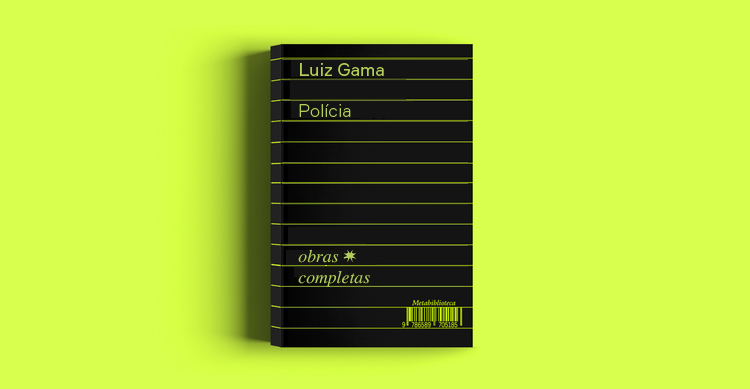
O volume Polícia compreende escritos da época em que Luiz Gama era escrivão de polícia e inclui também textos produzidos após a sua demissão. Na obra estão presentes documentos de interesse público contemporâneo para se compreender a formação de Gama como amanuense e futuramente advogado.
For further
information
São documentos diversos, como requerimentos, petições, extratos de processos, interrogatórios e autuações. Gama iniciou o trabalho na polícia com a nomeação como escrivão em novembro de 1854 e foi demitido 15 anos depois, em novembro de 1869.
São documentos diversos, como requerimentos, petições, extratos de processos, interrogatórios e autuações. Gama iniciou o trabalho na polícia com a nomeação como escrivão em novembro de 1854 e foi demitido 15 anos depois, em novembro de 1869.
▅ Vol. 11
Africa-Brazil
1850 – 1882

The closing
volume of the collection, Africa-Brazil comprises official writings, police
writings and, above all, writings related to the experience of freedom of
illegally enslaved Africans in São Paulo. Comprising texts that shed new light
on Gama's presence in the world of police and administration, the final volume
of the Complete works gives new meaning to his relationship with the immense
and plural community of Africans (and their descendants) in Brazil.
For further
information
Since Gama's name appears in the official records as an interpreter for Africans in the capital's police department, Africa-Brazil reveals the beginning of this intricate mediation of languages, expectations, desires and, ultimately, political projects and struggles. Africa-Brazil, therefore, brings together the beginning, the middle and the end of this relationship, constitutive of his formation as a thinker, the Africa-Brazil relationship, which was also constitutive of the country where Gama was born, lived and fought: Brazil.
Since Gama's name appears in the official records as an interpreter for Africans in the capital's police department, Africa-Brazil reveals the beginning of this intricate mediation of languages, expectations, desires and, ultimately, political projects and struggles. Africa-Brazil, therefore, brings together the beginning, the middle and the end of this relationship, constitutive of his formation as a thinker, the Africa-Brazil relationship, which was also constitutive of the country where Gama was born, lived and fought: Brazil.
